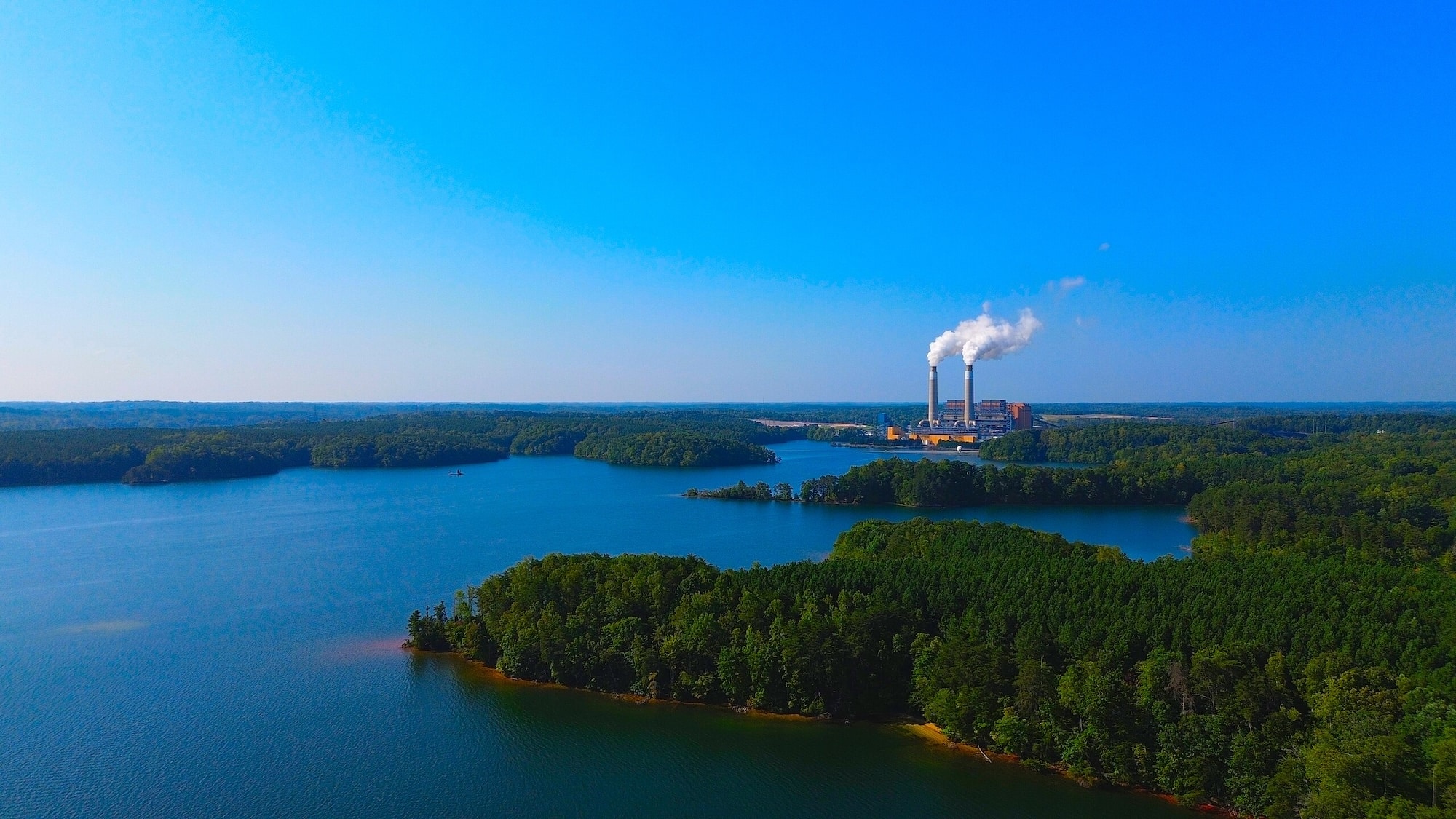Duke Energy funded climate science-denying John Locke Foundation

Duke Energy contributed $25,000 to the John Locke Foundation (JLF), a leading voice of climate science denial and renewable energy rejectionism in North Carolina. The contribution, which occurred in 2021 and which Duke disclosed in a rate hike case at the N.C. Utilities Commission (NCUC) on Jan. 19, 2023, came as the think tank prepared to weigh in on state regulatory matters of critical interest to the monopoly utility. The JLF is a member of the State Policy Network, an alliance of conservative think tanks that helps drive corporate-backed bills in state legislatures and that has played a key role in casting doubt on climate science.
As a 501(c)(3) charitable nonprofit under IRS rules, JLF is not required to disclose its donors, and does not routinely do so. However, Duke’s filing at the NCUC shows that on June 2, 2021, Duke Energy Carolinas — the Duke subsidiary that provides electricity to western North Carolina and South Carolina — made the five-figure contribution to JLF for “civic and political activity.” The transaction showed up in DEC’s answer to a request from state regulators for more details on its spending.
Because this detailed data is not regularly collected and reported by state regulators, it’s unknown whether this was a one-off contribution from Duke Energy to JLF or a recurring one. Both Duke Energy and JLF declined to offer additional details on their financial ties in response to a request from the Energy and Policy Institute. Garrett Poorman, Duke’s lead communications manager, said that the company “support[s] numerous energy focused organizations, as is common across the industry.” Brooke Medina, JLF’s vice president of communications, downplayed the contribution as “less than one-half of one percent of our organizational revenue for that year.”
The contribution to JLF did not come from the Duke Energy Foundation, the company’s charitable arm, which discloses its grants in a publicly accessible annual report, as is also required of a 501(c)(3) charitable organization in tax reporting. Instead, the payment came from DEC’s corporate coffers, which are not subject to nonprofit disclosure requirements. Duke Energy did not seek to recover the payment from customers in rates, booking it to an account typically recovered from shareholders.
DEC’s known transaction with JLF came at a decisive moment for the future of the company. Exactly one week later, on June 9, 2021, N.C. Gov. Roy Cooper (D) issued an executive order calling for the development of 2.8 gigawatts of offshore wind energy resources by 2030 and 8 GW by 2040.
Less than a week after Cooper issued the wind order, on June 15, 2021, N.C. House Republicans introduced a comprehensive energy bill favorable to Duke Energy and its investors (House Bill 951). The closed-door negotiations that produced the legislation involved Duke, the renewable energy industry, industrial consumers, and legislative Republicans, but shut out other stakeholders, including residential customers and environmental advocates. The compromise version that eventually became law allows Duke to continue building new climate-polluting methane gas plants and lets it raise rates over multi-year periods, a provision that was widely opposed by both businesses and consumer advocates.
On June 24, 2021, less than three weeks after receiving DEC’s contribution, JLF published a report it shared with state lawmakers titled “Energy Crossroads: Exploring North Carolina’s Two Energy Futures.” It argued against Cooper’s plans to increase renewable generation and instead made the case for more nuclear and methane gas plants — as does Duke Energy’s own preferred plan for cutting carbon emissions to comply with state law. However, JLF’s plan differs from Duke’s in several ways, including technological assumptions, its interpretation of what constitutes “least-cost” investments, and the length of the stakeholder process. The report’s author was Jordan McGillis, then the deputy director of policy at the Institute for Energy Research, a think tank founded by industrialist Charles Koch and funded by fossil-fuel interests.
One year after receiving the donation from Duke Energy, JLF produced yet another report targeting renewables titled “Big Blow: Offshore Wind Power’s Devastating Costs and Impacts on North Carolina,” which took aim at Cooper’s executive order. The report’s authors were Jon Sanders, an in-house JLF editor, and two outside authors — Mitch Rolling and Isaac Orr. At the time, Rolling and Orr served as policy fellows at the Center of the American Experiment (CAE), an SPN-member think tank in Minnesota that criticizes renewable energy and casts doubt on climate science.
Both JLF and CAE are supported by the Lynde and Harry Bradley Foundation, a leading funder of climate science denial. In 2021, Bradley’s chair was Art Pope, the North Carolina businessman, Republican politician, and leading conservative donor who founded JLF and has been a key funder of the group’s efforts to cast doubt on climate science. In that year alone, the Bradley Foundation gave $100,000 to JLF and $50,000 to CAE.
On July 11, 2022, JLF submitted its “Analysis of Duke Energy’s Carolinas Carbon Plan and a Least Cost Decarbonization Alternative” to the NCUC as part of the public proceedings to consider the utility’s carbon reduction plan. Also authored by Sanders, Rolling, and Orr, the analysis pits decarbonization against reliability. “The main takeaway is this: North Carolinians can either have a least-cost, reliable electric grid or reduce carbon dioxide emissions,” they write. “They cannot have both.” In fact, the North American Electric Reliability Corporation — the international nonprofit regulatory authority charged with reducing risks to the grid – says that rapid deployment of new clean generation capacity like wind, solar, and batteries can “make a positive difference” for reliability.
Four days later after submitting its analysis to the NCUC, JLF petitioned to intervene in the formal proceedings on the utility’s carbon reduction plan. Three days after that, however, the organization withdrew the petition, having “determined that it does not have sufficient resources, including human resources, to dedicate to participation in this matter as a [sic] intervenor.”
Rolling and Orr have since moved on to found a new organization called Always On Energy Research with former JLF CEO Amy Cooke, who was part of President Trump’s 2016 EPA transition team and a visiting energy policy fellow at SPN, where she led the organization’s Energy Policy Working Group. Cooke previously worked for an SPN-affiliated think tank in Colorado that was funded by coal producers.
SPN recently bestowed its Bob Williams Award for Most Influential Research on JLF for the “Energy Crossroads” report. In a press release celebrating the win, JLF credited the document for the eventual passage of HB 951, as well as for Duke’s decision to slow the deployment of wind and solar solutions and the pace of coal plant retirements.
In praising itself, JLF quoted North Carolina state Sen. Paul Newton, the Senate majority leader and a member of several key committees overseeing energy policy and electric utilities. Newton previously worked for Duke Energy for 25 years, rising to serve as general counsel for its utilities and North Carolina state president. The company is the top corporate contributor to his campaign.
“The Energy Crossroads policy analysis was a bit like divine intervention,” Newton said, crediting it with helping to sell “a common-sense path towards carbon reduction for North Carolinians.”
(Photo of Duke Energy’s Belews Creek Steam Station, a coal- and gas-fired plant in Stokes County, North Carolina, by David Dalton via Wikimedia Commons.)



